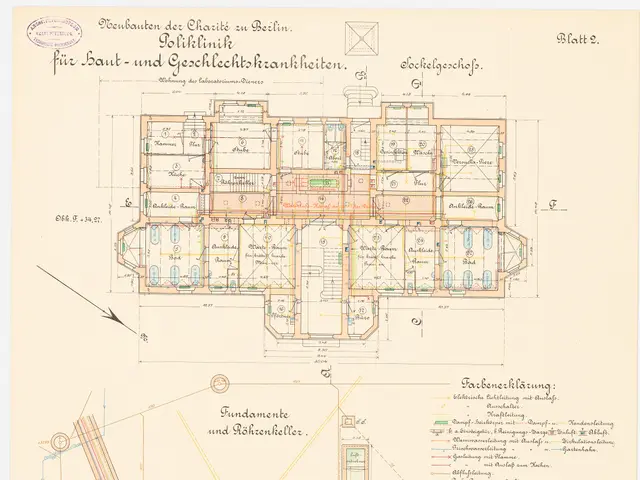Reduced Scope 1 emissions for Airbus through the use of Sustainable Aviation Fuel.
Airbus, a leading aircraft manufacturer, is committed to supporting and acting as a catalyst for the development and use of Sustainable Aviation Fuels (SAF). The company is making significant strides in integrating SAF into its operations, but faces challenges related to scaling production and supply chain constraints.
Advancements in SAF Adoption
Airbus has been using SAF for its Beluga fleet since 2019, transporting large components and delivering satellites, military cargo, and humanitarian aid. The company is progressively replacing Conventional Aviation Fuels with SAF uptake at two additional facilities in Toulouse, France and Tianjin, China.
Operations and logistics, including component assembly lines, Final Assembly Lines, and Customer Delivery Centres, are being carried out with SAF at these sites. A regional jet from Airbus Hamburg-Finkenwerder Airport to Toulouse-Blagnac Airport has been fueled with a 34 percent 'drop-in' SAF blend since Autumn this year.
Moreover, Airbus has tested the use of 100% SAF on the A350 (ECLIF) and the A320 (VOLCAN) for in-flight emissions testing. After blending, the fuel is certified to ASTM D1655 and can be regarded as conventional Jet A1 kerosene.
Partnerships to Accelerate SAF Industry
Airbus has partnered with major aviation and energy companies such as Air France, Safran, and Total to develop a sustainable domestic biofuel industry in France. This collaboration notably demonstrated the technical viability of SAF with a flight powered by an innovative sugar-based biofuel on an Airbus A321, proving operational feasibility.
Challenges in SAF Adoption
Despite these advancements, Airbus faces significant challenges in scaling SAF production and supply chain constraints. Production and delivery rates in 2025 have been adversely impacted by ongoing supply chain issues, notably engine shortages, which indirectly affect how quickly new SAF-capable aircraft can be delivered and operated at scale.
Industry-wide, including Airbus, there is a recognized need to scale SAF production sustainably and economically to meet aviation’s CO₂ reduction goals. This requires coordinated efforts among manufacturers, energy suppliers, and regulators.
While military and defense sectors are approving SAF for use, broad commercial adoption still hinges on infrastructure development and certification processes to integrate fuels seamlessly at manufacturing sites and operations.
Looking Ahead
Airbus's ambition is to reduce Scope 1 & Scope 2 industrial emissions by up to 63% by 2030 compared to 2015. The company is working towards sustainable aerospace, aiming to reduce the environmental footprint of its products and services.
By the end of this decade, all Airbus manufacturing sites calling on the logistic services of ATI could be supplied with SAF. Today, reduced carbon fuel can provide on average 80 percent CO savings over the entire lifecycle when compared to traditional aviation fuel.
Airbus is actively supporting the implementation of incentives and long-term policies to encourage the growth of SAF production capacity and market development. The company's efforts reflect the broader industry trend towards reducing aviation emissions through sustainable liquid fuels.
- Airbus, in partnership with companies like Air France, Safran, and Total, is developing a sustainable domestic biofuel industry in France, aiming to demonstrate the technical and operational feasibility of SAF.
- The company's goal is to reduce Scope 1 & Scope 2 industrial emissions by up to 63% by 2030 compared to 2015, working towards sustainable aerospace and a smaller environmental footprint.
- By the end of this decade, Airbus aims to have all its manufacturing sites using logistics services supplied with SAF, offering a significant reduction in carbon emissions over traditional fuels.
- Despite advancements in SAF adoption, challenges related to scaling production and supply chain constraints continue to pose challenges for Airbus in achieving its goals.
- Industry-wide collaboration among manufacturers, energy suppliers, and regulators is crucial for scaling SAF production sustainably and economically to meet aviation’s CO₂ reduction goals, including broad commercial adoption and infrastructure development.








